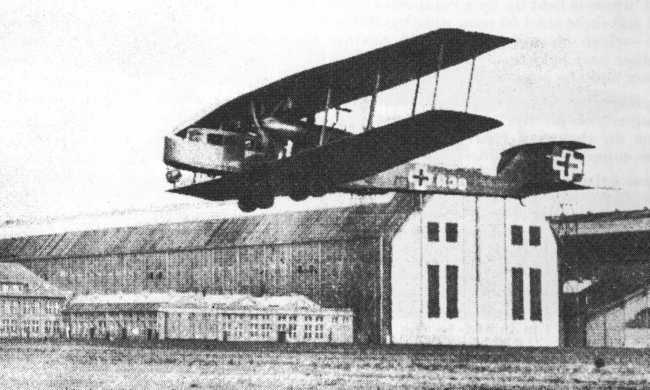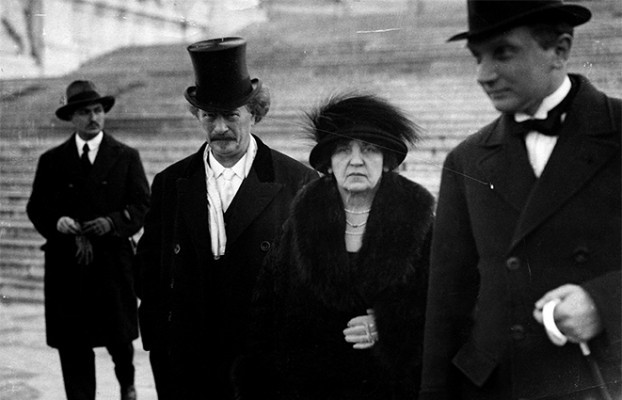Archives of the Grand National Assembly of Turkey
2nd Closed Meeting
20th of August 1920
1st Session
Started: 09:00
Chairman — Reisisâni Celâlettin Arif Bey
Clerks : Haydar B.
Index:
1. Resumé of the Previous Closed Session
2. Statement
a. His Excellency the Prime Minister Mustafa Kemal Pasha’s Statement
3. Subject of Discussion
a. The policy of the GNA Government towards Ethem the Circassian and the Kuva-yi Seyyare
CHAIRMAN – I hereby open the closed meeting.
1. RESUME OF THE PREVIOUS CLOSED SESSION
CHAIRMAN – In the previous session, His Excellency the Prime Minister has disclosed developments from the National Struggle and other related topics. It was then decided that the GNA Government must maintain the mask of ambivalence towards the Sultan-Caliph, but at the same time undermine the authority of the Istanbul Government. Does anyone disagree with the Resumé? Does everyone agree with the Resumé? .... The Resumé is then accepted unanimously.
2. STATEMENT
a. His Excellency the Prime Minister Mustafa Kemal Pasha’s Statement
CHAIRMAN – Your Excellency, the floor is yours.
HIS EXCELLENCY THE PRIME MINISTER - Thank you. Gentlemen, I came here with good news. As you have witnessed in the Assembly, we have succesfully prevented a possible Greek seizure of formerly Allied occupied territories, and we are establishing a coherent frontline in Western Anatolia. As announced, Ismet Pasha will assume the overall command of the front. We have decided against any split in command, and Ismet Pasha will be the ultimate military authority of the front. We have started to make defensive preparations in Kütahya and other cities that will be our strong-points.
These, you have heard in tha halls of the Assembly. What you haven't heard is the formation of a special branch of the armed forces. Made up of the remnants of the Special Organisation and the National Defense Society. Many of you present here would know the organisation called as the Karakol society, and may inquire why they are not included in this effort to create our own intelligence-security organisation. The truth is simple: They have refused to come under the authority of the GNA and defiantly continued to operate clandestinely. After the British stormed the Parliament, many of the Karakol figureheads were exiled to Malta. Some have fled to here to take part in our assembly, others followed Enver Pasha and perished alongside him. We should actaully send a note of gratitude to the Central Asian Soviets for that one.
Anyways, the new Security Agency of the Grand National Assembly has been actively neutralising agents from the Istanbul Government, disrupting loyalist activities, and eliminating potential rebel figureheads. If you have ever asked why some aghas, tribal leaders and imams are mysteriously turning up dead, there is your answer. Any traitor they don't eliminate, they have been turning in to the new courts we have been establishing.
On those courts, the "Freedom Courts", they have been established in all of the provinces under our control. They have authority over local-provincial courts, and their objective is to root out and punish rebellions. As of now, they have tried a considerable number of traitors attempting to incite revolt against our government. Only a handful are hanged, most of them are impromised. You might find these measures to be harsh, I wouldn't disagree with you, but we are in the middle of an existential conflict. Such methods are therefore necessary. Until the conclusion of the war and the following period of stabilization, these courts will remain.
On a happier note, our intelligence units have managed to infiltrate the Greek forces. Interestingly enough, some Ionian Greeks are more loyal to land they have lived in rather than the idea of a far-away "nation-state". We know now their troop consentrations, their supply points, their strongholds. This data will prove to be important. However, this also shows that we might have Ionian Greek infiltrators within us. Counter-intelligence operations have been authorized to determine whether our intelligence is compromised or not. I don't wish this development to create any anti-Ionian sentiment though, they have been our neighbours and friends for centuries, and they will remain so. We will not tolerate any act of ethnic cleansing. One shameful catastrophy is enough, we cannot afford another one.
Lastly gentlemen, I think all of you are ready to hear the driving idea behind our struggle: Turkey will become a Republic. A secular, democratic, modernised, and forward-thinking Republic. We cannot be tied to the Middle Ages by arbitrary institutions such as the Sultanate and the Caliphate. We cannot be hold back by a regime of Imams and Aghas. We cannot have the remaining Ayan as a nobility, we cannot accept that the Turkish nation be denied of the fruits of reason and modern science.
Gentlemen, we will build a republic free of religion and tradition in this room. The necessary work to do so must begin at once. We must be able to declare the Republic immediately after the conclusion of the war. To this end, we must lay the groundwork. We must eliminate the power of the Aghas and the Ayan. We must reign in the imams. We must make sure that conservative circles of the assembly are kept away from holding any meaningful power. We must gather the intelligentsia to discuss how to establish certain institutions and how to manage certain projects. We must protect the already fragile middle class, and equally protect the farmers.
What I am laying before you here, is not a democratic reform proposal like the two constitutional monarchies we had. No, I am telling you that we need to destroy the rotten construct of this society, and rebuild it anew using science, reason, laicism, and democracy. I am talking about a revolution.
As you can agree, if such a modern “Republic of Citizens” is to replace the “the Sovereign and the Subject” model, we cannot tolerate any element of feudalism. The Ayan class was crushed in the Balkan Wars, yet the Aghas remain. The imams remain. The ideas of an ancient Arab Sheikh continue to poison our lives. And now, we have the epitome of a warlord before us. Ethem the Circassian.
3. SUBJECT OF DISCUSSION
a. The policy of the GNA Government towards Ethem the Circassian and the Kuva-yi Seyyare
CHAIRMAN – Thank you, Your Excellency. We now move to the debate. Anyone wishing to speak? Deputy from Istanbul Bekir Salih Efendi, you may proceed.
BEKIR SALIH EFENDI – Gentlemen, while Ethem and his irregulars may be irritatingly autonomous from our authority, they have achieved victory after victory against the Greeks and loyalist forces. Shouldn’t these successes be enough to prove that they are effective and loyal to our cause?
I say that we need to trust the Kuva-yi Seyyare, and give them what they need: support, and as much autonomy as they need. They are indispensable for our war effort! We cannot afford to alienate him and his irregulars!
Curator’s Note: While not written, latter accounts claim that at this moment Mustafa Kemal Pasha silently called for an aid and whispered something to his ear. It might explain why Bekir Salih Efendi was under surveillance until the whole Ethem the Circassian affair would be resolved. Interestingly enough, he would be invited to the next closed meetings. Some sources suggest that this was due to his useful input on other matters, and the fact that the Prime Minister could tolerate differences in opinion better than anticipated
CHAIRMAN – Thank you. Deputy from Sivas Kızıl Mahmud Efendi, by all means proceed.
KIZIL MAHMUD EFENDI – We cannot trust a rural warlord, gentlemen. He is not even Turkish to begin with, he is Circassian! His bandits are all Circassians and Abkhazians, they can even be Bolshevik agents! Non-Turks cannot be trusted! We need to be eliminate him!
Curator’s Note: Kızıl Mahmud Efendi’s xenophobia obviously disturbed the Prime Minister, yet he was a useful ally for getting rid of Ethem. As such, he had remained a part of the closed meetings until a few months after the conclusive resolution of the affair. The moment he conveniently lost his position as a deputy, he was charged with plotting against the assembly and being a Turanist CUP spy. He was later hanged.
CHAIRMAN – Thank you for the… warm… words, deputy. Chief of Staff Mustafa Fevzi Pasha, you have the floor.
MUSTAFA FEVZI PASHA I cannot deny the effectiveness of the Kuva-yi Seyyare. They have proved successful against enemy units that were more numerous, better trained, better organized and better armed. They excel in guerilla warfare, but that’s it. We cannot win this war with guerillas. It was the XV. Army Corps that liberated the Eastern Provinces. A disciplined, distinguished fighting force. In the South, we wore the French down, not defeated them. It is clear as day that we need a fully functional regular army to fight against the Greeks.
Yet here is this warlord, claiming that the “era of armies” is over! What nonsense is that? He is needlessly creating a division in the public opinion when we cannot afford it. He is a danger to unity of the Motherland. He is a danger to the National Struggle, and a traitor. Yes, you heard me right, a traitor. We have intercepted his telegrams to the Greeks, pledging his support if we force him to join the regular army. We have also intercepted telegrams informing the Istanbul Government about troop deployments.
Gentlemen, we need to get rid of him. He will clearly revolt if we act too late. We need to crush him.
CHAIRMAN – Deputy from Sinop Eflatun Murat Efendi.
EFLATUN MURAT EFENDI – I agree with you, Fevzi Pasha, yet how do you suggest we get rid of him? Does anyone here have any concrete idea? We cannot assassinate him, his men are absolutely loyal to him and protect him day and night. Crushing him with the regular forces will be a waste of lives and munitions, not to mention a potential weakness in the front.
Mustafa Kemal Pasha interrupts
HIS EXCELLENCY THE PRIME MINISTER – Assuming I have the support of a majority of the individuals present here, I have already concocted a plan for that. As Eflatun Murat Efendi wisely said, assassination won’t work, and crushing him outright will be a waste of precious resources and lives.
We need to ask ourselves, “what is the one think Anatolian aghas and ayans hate the most?” The answer is simple: Each other. We need to guide the other irregular commanders into thinking that Ethem is gaining to much power, and that he should be stopped. Let local feudal lords fight against each other, let them kill each other and leave the future to us. Of course, if they inflict wrath upon innocent civilians, then we will cleanse this country of them the moment they least expect.
Simply put, let feudalism kill itself. Is anybody against this plan? No? Good.


































